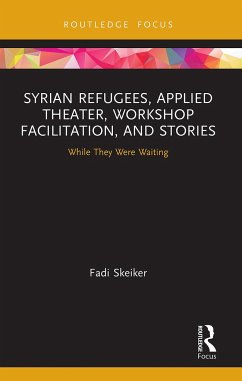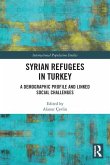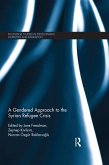This book analyzes and theorizes the e cacy of using applied theater as a tool to address refugee issues of displacement, trauma, adjustment, and psychological well-being, in addition to split community belonging.
Fadi Skeiker connects refugee narratives to the themes of imagination, home, gender, and conservatism, among others. Each chapter outlines the author's applied theater practice, as a Syrian, with and for Syrian refugees in the countries of Jordan, Germany, and the United States.
This book will be of great interest to scholars, students, and practitioners of applied theater studies and refugee studies.
Fadi Skeiker connects refugee narratives to the themes of imagination, home, gender, and conservatism, among others. Each chapter outlines the author's applied theater practice, as a Syrian, with and for Syrian refugees in the countries of Jordan, Germany, and the United States.
This book will be of great interest to scholars, students, and practitioners of applied theater studies and refugee studies.
" The book will fit well in discussions of ethics and applied theatre practice, the politics of psycho/social support in humanitarian interventions, drama therapy, and theatre for social change. But its biggest strength lies in Skeiker's narrations of the practice of applied theatre itself, and so is best suited for students and teachers thinking about how to talk about what they do, how to relate the value of their work, and how to critically assess the strengths and failures of their practice. In providing exactly such an assessment, Skeiker emerges as an honest and seasoned practitioner unfolding his practice for a reader to take notes from and think with. Theatre scholarship in English and Arabic to date hosts very few voices like Skeiker's. His narrative presents a practitioner, thinker, and fellow citizen who is vulnerable yet knowledgeable, experienced and yet thinking critically about the ethics and impact of his work. His book gestures toward a future for applied theatrewith, between, and by Arabic-speaking communities and their neighbors, wherever they find themselves at home."
Rayya El Zein
Wesleyan University
Rayya El Zein
Wesleyan University









